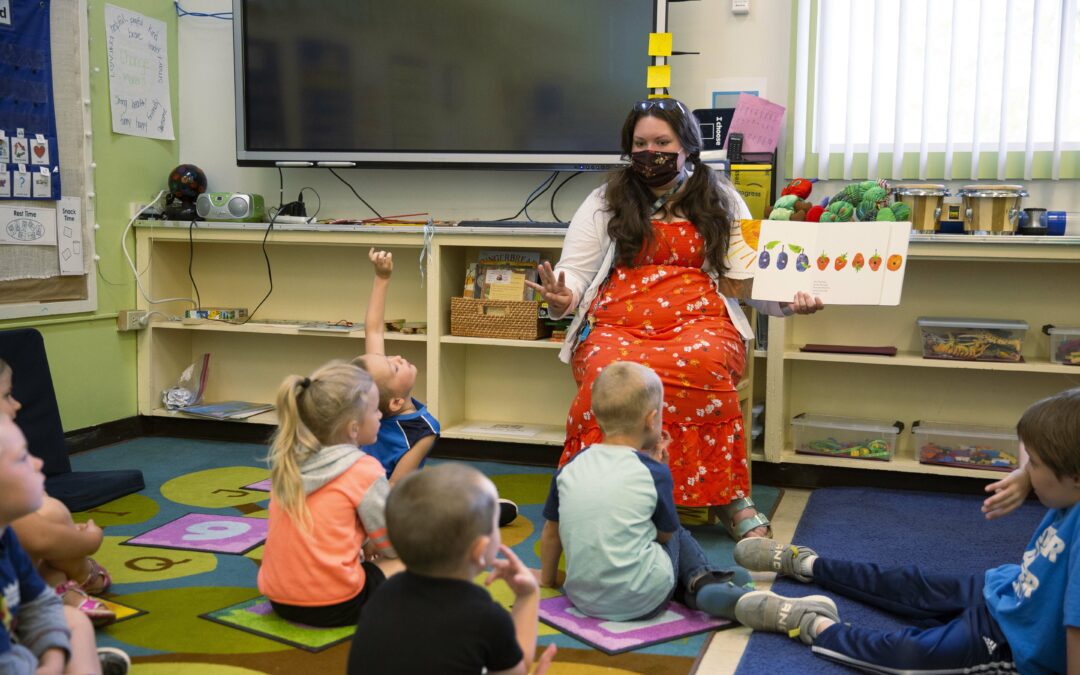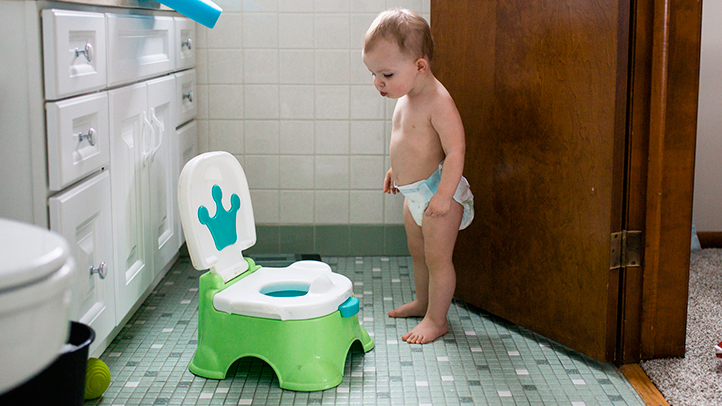Signs of a Bad Preschool Teacher: Red Flags to Watch Out For

Signs of a bad preschool teacher include lack of enthusiasm, poor communication skills, and unprofessional behavior. A bad preschool teacher may also show a lack of empathy, inability to connect with children, and a disregard for classroom safety.
It is important to identify these signs early on to ensure a positive and nurturing learning environment for children. By being observant and paying attention to these indicators, parents and administrators can make informed decisions for the well-being and education of young students.
Good preschool teachers play a crucial role in shaping the foundation of a child’s education, so it is essential to be aware of the signs that suggest a teacher may not be suited for the job.
Spotting Bad Preschool Teachers
In every child’s educational journey, preschool holds a crucial place. It is during these early years that children begin to learn essential skills and develop a foundation for future learning. Therefore, the quality of preschool education and the competency of the teachers play a significant role in a child’s growth and development. While most preschool teachers are dedicated professionals, it’s important to be mindful of signs that may indicate a bad preschool teacher, as this can have negative consequences on a child’s early educational experiences.
Importance Of Preschool In Child Development
Preschool plays a vital role in a child’s overall development. It is an environment where children learn and develop cognitive, social, emotional, and physical skills. From learning the alphabet to developing interpersonal skills, preschool provides a foundation that prepares children for formal schooling and future success. When children are exposed to skilled and nurturing preschool teachers, they receive the guidance and support needed to thrive.
Consequences Of Negative Early Educational Experiences
Negative early educational experiences can have a long-lasting impact on a child’s academic journey and overall well-being. When children are subjected to a bad preschool teacher, several consequences may arise:
- Academic setbacks: A bad preschool teacher may lack the knowledge or skills necessary to effectively teach and engage young learners, resulting in academic setbacks for the child.
- Emotional distress: A negative preschool experience can lead to emotional distress in children. The lack of nurturing and supportive interactions can hinder a child’s emotional development, leading to a lack of confidence or behavioral issues.
- Stunted social growth: Preschool is a critical time for children to begin developing social skills and building relationships. A bad preschool teacher may fail to create a conducive environment for socialization, limiting a child’s ability to interact with their peers and develop important social skills.
- Inadequate preparation for future education: The early years are crucial for laying the foundation of a child’s academic journey. A bad preschool teacher may fail to adequately prepare children for future educational endeavors, leaving them unprepared for the challenges that lie ahead.
These consequences highlight the significance of identifying and addressing signs of a bad preschool teacher. By being vigilant and proactive, parents and caregivers can ensure that their children receive a positive and enriching early educational experience, setting them up for a successful future.

Credit: childinst.org
Red Flags In Classroom Behavior
When it comes to preschool education, the role of a teacher is crucial in shaping a child’s early learning experiences. The teacher’s behavior in the classroom can have a significant impact on a child’s development and overall academic success. This is why it is essential for parents and guardians to be aware of red flags in classroom behavior that may indicate a bad preschool teacher. In this section, we will explore some common red flags to look out for when evaluating a preschool teacher’s behavior.
Lack Of Structure And Routine In The Classroom
In a preschool setting, structure and routine play a vital role in providing a stable and consistent learning environment for young children. Preschoolers thrive on predictability, and a lack of structure can leave them feeling confused and unsettled. A bad preschool teacher may exhibit signs of poor classroom management by failing to establish a well-defined schedule or proper routines. Without a consistent routine, children may struggle to understand expectations and may not reach their full potential.
Poor Classroom Management Skills
Effective classroom management is essential for maintaining a positive and productive learning environment. A bad preschool teacher may demonstrate poor classroom management skills, which can manifest in various ways. This could include difficulty in keeping the class focused, allowing disruptions to go unchecked, or struggling to maintain control and discipline. These red flags indicate that the teacher may not have the necessary skills to handle the diverse needs and behaviors of young children effectively.
Teacher’s Indifference Or Impatience Towards Children
A good preschool teacher should show genuine care and understanding towards their students. However, a bad teacher may display indifference or impatience towards children, which can be detrimental to their self-esteem and emotional well-being. Signs of indifference may include a lack of interest in children’s activities or concerns, minimal interaction, and little enthusiasm during classroom sessions. Impatience can manifest through a short temper, snapping at children, or being visibly frustrated when dealing with typical preschooler behavior.
Communication Breakdown
In a preschool setting, effective communication is crucial for the overall well-being and development of the children. However, when there is a communication breakdown, it can lead to a range of negative consequences. In this section, we will explore the signs of a bad preschool teacher when it comes to communication, focusing on ineffective communication with parents, a dismissive attitude towards parental concerns, and a non-collaborative approach with colleagues.
Ineffective Communication With Parents
When a preschool teacher fails to effectively communicate with parents, it can hinder the child’s progress and create a sense of disconnect. Parents rely on open and honest communication from teachers to stay informed about their child’s daily activities, milestones, and any concerns that may arise. Signs of ineffective communication may include:
- Lack of regular updates about the child’s progress or behavior
- Failure to respond to parent’s inquiries or concerns in a timely manner
- Not sharing important information about events or changes happening at the preschool
Effective communication ensures that parents are involved in their child’s learning journey and feel confident in the teacher’s abilities. When the communication channels are weak or nonexistent, it can lead to frustration and a lack of trust.
Dismissive Attitude Towards Parental Concerns
Parents have valuable insights and observations about their children that can greatly contribute to their well-being and learning experience. A good preschool teacher values and respects parental concerns and takes them seriously. However, a bad preschool teacher may demonstrate a dismissive attitude towards these concerns, which can be detrimental to the child’s development. Signs of a dismissive attitude include:
- Brushing off or minimizing concerns raised by parents
- Not giving adequate attention or consideration to specific requests or suggestions
- Dismissing the importance of parental involvement in the child’s learning process
A dismissive attitude can create a barrier between the teacher and the parents, leading to a breakdown in trust and collaboration.
Non-collaborative Approach With Colleagues
Collaboration within the preschool environment is essential for creating a supportive and productive atmosphere. A bad preschool teacher may exhibit a non-collaborative approach, which can have negative implications for the entire team. Signs of a non-collaborative approach may manifest in the following ways:
- Reluctance to participate in team meetings or discussions
- No willingness to share resources or ideas with colleagues
- Lack of cooperation when it comes to resolving conflicts or addressing challenges together
Effective collaboration among teachers fosters a positive working environment where ideas are shared, problems are solved collectively, and the overall quality of education is improved.
Signs Of A Bad Preschool Teacher: Professionalism Lapses
When it comes to the well-being and development of our children, selecting the right preschool teacher is of utmost importance. A good preschool teacher acts as a guide, mentor, and nurturer, helping young minds blossom during these formative years. However, not all teachers possess the necessary professionalism and skills to excel in this role. In this article, we will explore the signs of a bad preschool teacher, focusing on professionalism lapses. Let’s take a closer look at some alarming red flags.
Inadequate Qualifications And Continuous Education
An ideal preschool teacher should have the appropriate qualifications and stay up-to-date with the latest research, methodologies, and teaching techniques. However, a bad preschool teacher may lack the necessary educational background or fail to invest in continuous education. This can hinder their ability to effectively cater to the diverse needs and unique learning styles of children in their care.
Unprofessional Conduct With Students And Staff
A bad preschool teacher often displays unprofessional conduct, not only with the students but also with their colleagues. This can manifest in various ways, such as showing favoritism towards certain students, publicly belittling or demeaning children, or engaging in conflicts with parents and staff members. Unprofessional behavior creates a negative environment that affects the overall learning experience and jeopardizes the emotional well-being of young learners.
Neglecting Child Safety And Well-being
Child safety and well-being should always be a top priority for any preschool teacher. However, a bad preschool teacher may exhibit negligence in this crucial aspect. They might overlook safety protocols, fail to adequately supervise the children, or disregard proper hygiene practices. Additionally, a lack of sensitivity and empathy towards a child’s emotional and physical needs can lead to a detrimental impact on their overall development.
By recognizing the signs of a bad preschool teacher, parents and school administrators can take the necessary actions to ensure a safe and supportive learning environment for children. While these warning signs may vary in intensity, it is crucial to address any lapses in professionalism promptly to provide young minds with the care they deserve.
Child-centric Concerns To Observe
Observing child-centric concerns is essential in identifying signs of a bad preschool teacher. Look out for indicators such as lack of patience, poor communication, limited creativity, minimal attention to individual needs, lack of enthusiasm, and disregard for safety protocols.
Signs Of Favoritism Or Discrimination
One of the child-centric concerns to observe when evaluating the quality of a preschool teacher is the presence of any signs of favoritism or discrimination. A nurturing and inclusive environment is essential for a child’s healthy growth and development. However, some teachers may unknowingly or consciously favor certain students over others based on various factors such as appearance, behavior, or even personal connections.
When a teacher exhibits favoritism or discriminates against certain children, it can have a negative impact on the classroom dynamics and the affected child’s self-esteem. It creates an unfair and unequal learning environment where some students may receive preferential treatment while others are neglected or overlooked.
Here are some indicators that may suggest a teacher is showing signs of favoritism or discrimination:
-
Unequal allocation of resources: If a teacher consistently assigns better materials, activities, or privileges to specific students without valid reasoning, it may indicate favoritism.
-
Unbalanced attention: Observing whether the teacher spends more time interacting with certain students while neglecting others is another red flag.
-
Preferential seating arrangements: If the seating positions are consistently assigned in favor of a few students, it may imply a biased approach.
-
Disregard for students’ voices: When a teacher consistently dismisses or belittles the opinions or interests of particular students, it may indicate discrimination or favoritism towards others.
Lack Of Individual Attention To Students
In a child-centric learning environment, it is crucial for preschool teachers to provide individual attention to each student. This personalized approach allows them to understand the unique needs, strengths, and challenges of every child, enabling effective teaching and fostering positive growth.
However, a lack of individual attention can lead to several detrimental consequences, such as hindered academic progress, decreased motivation, and feelings of being forgotten or neglected. It is therefore important to watch out for signs of inadequate individual attention in a preschool classroom.
Here are some indicators that may suggest a teacher is not providing sufficient individual attention:
-
Failing to provide appropriate support or guidance to students who are struggling academically or socially.
-
Not encouraging or facilitating meaningful interaction between students, which promotes collaboration and social development.
-
Consistently ignoring or dismissing students’ unique interests, talents, or learning styles.
-
Lack of personalized feedback or recognition of students’ achievements or efforts.
Unstimulating Or Overly Punitive Environment
A child-centric preschool classroom should strive to provide a stimulating and nurturing environment that encourages curiosity, exploration, and a love for learning. However, some teachers may create an unstimulating environment that fails to engage students or, on the other extreme, an overly punitive environment that suppresses creativity and discourages active participation.
Observing the classroom environment can provide valuable insights into a teacher’s approach and the overall atmosphere in which children spend their time. Here are some signs to look for when assessing whether the environment is unstimulating or overly punitive:
| Signs of an unstimulating environment | Signs of an overly punitive environment |
|---|---|
| Minimal or repetitive learning materials or activities. | Excessive use of strict rules and punishments. |
| Lack of opportunities for imaginative play or hands-on experiences. | Avoidance of open-ended discussions or critical thinking activities. |
| Underutilization of visual aids, technology, or interactive resources. | Consistent use of shaming or humiliation as disciplinary measures. |
| Limited encouragement of active participation and exploration. | Strict adherence to rigid schedules without room for flexibility or spontaneity. |
| Absence of opportunities for creative self-expression or individual projects. | Inconsistent and arbitrary enforcement of rules. |
Addressing Red Flags For Child’s Benefit
Identifying the signs of a bad preschool teacher is crucial for the well-being and development of your child. By addressing these red flags early on, you can ensure your child receives the highest quality education and support they deserve. In this section, we will explore steps you can take when identifying red flags, when to discuss concerns with the school administration, and how to find a supportive and nurturing educational setting.
Steps To Take When Identifying Red Flags
When it comes to recognizing red flags of a bad preschool teacher, it’s important to be observant and proactive. Here are some steps you can take:
- Observe the teacher’s interactions with the children: Pay attention to how the teacher engages with the children. Are they patient, attentive, and respectful? Do they actively listen and respond to the children’s needs?
- Monitor the classroom environment: Take note of whether the classroom is organized, clean, and safe. A chaotic or dirty environment may be a sign of neglect or lack of attention to detail.
- Communicate with your child: Regularly ask your child about their experiences at preschool. Watch for any changes in their behavior, mood, or attitude towards school. Children often provide valuable insights through their reactions.
- Talk to other parents: Engage in conversations with other parents to gather their impressions of the teacher. Getting a broader perspective can help validate your concerns or provide additional insights.
When To Discuss Concerns With School Administration
If you notice persistent red flags or have serious concerns about your child’s preschool teacher, it’s essential to address these matters with the school administration. Timing is crucial, and it’s best to take action sooner rather than later. Here are some instances when you should have a discussion:
- If you witness or suspect any form of verbal or physical abuse towards children.
- If you notice constant neglect or disregard for children’s emotional or physical well-being.
- If your child’s development or academic progress seems to be stagnant or regressing.
- If the teacher displays a lack of professionalism, such as consistently arriving late, not following the curriculum, or maintaining poor communication with parents.
Finding A Supportive And Nurturing Educational Setting
When it comes to your child’s education, finding a nurturing and supportive environment is paramount. Here are some steps you can take to ensure your child is enrolled in the right preschool:
- Research and visit multiple preschools: Take the time to research and visit different preschool options in your area. Look for facilities that prioritize a child-centered approach, have experienced and qualified teachers, and offer engaging activities for children’s overall development.
- Ask for references and testimonials: Reach out to other parents who have enrolled their children in the preschools you are considering. Inquire about their experiences and satisfaction levels to gain a better understanding of the school’s reputation.
- Interview the teachers and administrators: When visiting a potential preschool, have a conversation with the teachers and administrators. Discuss your concerns and expectations, and assess their responsiveness and commitment to addressing your child’s individual needs.
- Trust your instincts: Ultimately, trust your instincts as a parent. If something doesn’t feel right or you have reservations about a particular preschool, it’s important to listen to those concerns and continue your search until you find an environment where you feel confident your child will thrive.
Frequently Asked Questions On Signs Of A Bad Preschool Teacher
What Are The Signs Of A Bad Preschool Teacher?
A bad preschool teacher may show signs such as lack of patience, inadequate communication with parents, and inability to create a nurturing learning environment. These signs can indicate a teacher who is not equipped to provide the best educational experience for young children.
How Can You Identify A Bad Preschool Teacher?
You can identify a bad preschool teacher by observing their interactions with children and parents, noting if they lack enthusiasm, patience, or fail to establish a positive learning environment. Assessment of their teaching methods, communication skills, and ability to meet individual needs can also help in identifying a bad teacher.
Why Is Patience Important In A Preschool Teacher?
Patience is crucial in a preschool teacher as it allows them to effectively handle challenging situations and understand a child’s unique needs. A patient teacher can provide a supportive and nurturing environment, ensuring that each child receives the attention and guidance they require to thrive during their early years of education.
Conclusion
To ensure your child’s early years are filled with meaningful experiences, it is crucial to identify signs of a bad preschool teacher. By paying attention to their lack of enthusiasm, disorganized approach, constant use of negative reinforcement, and inability to foster a nurturing environment, you can take the necessary steps to find a better fit for your little one.
Trust your instincts and don’t settle for anything less when it comes to your child’s education and development.

With over 20 years of experience in early childhood education, Jane brings a wealth of knowledge to Classroom Journey. She specializes in play-based learning and has a passion for inclusive education.







One Comment